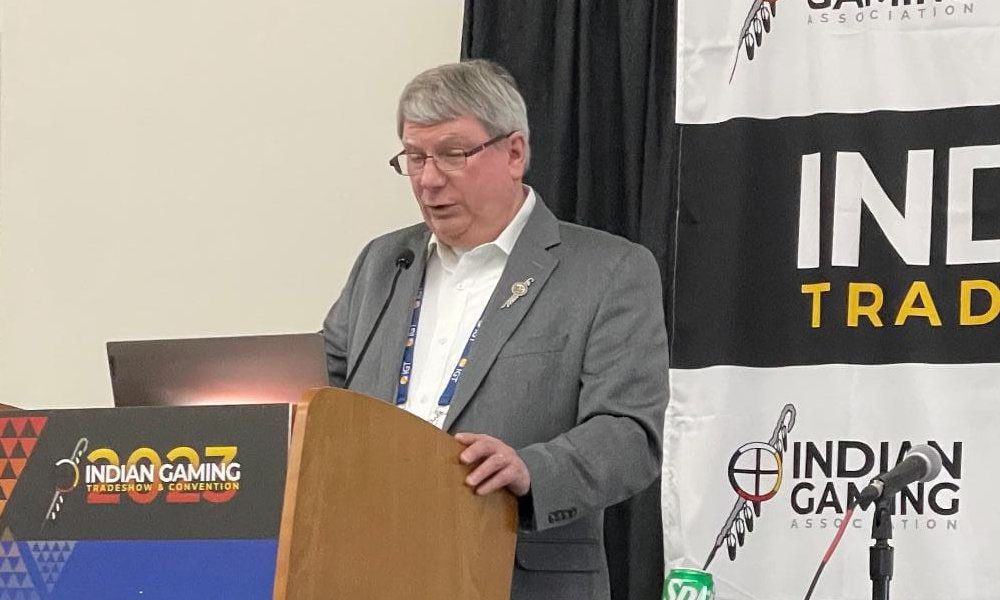Class II gaming is experiencing a resurgence in the U.S., as tribes use it for leverage against states trying to negotiate higher compact fees and impose other requirements.
Gene Johnson, executive vice president for Victor-Strategies, led a classroom discussion this week at the Indian Gaming Tradeshow & Convention to make tribes aware of their options and the trend taking place.
“We have seen that Class II is increasing market share of inventory, offering expanded content, and greatly improving the quality of the play,” Johnson said. “It can compete successfully against Class III.”
Class III refers to casino-style games, such as slot machines and table games, that are overseen by state compacts and requires payment of tax revenues to the state.
Class II is an electronic enhancement of traditional bingo that’s overseen by the National Indian Gaming Commission. Its games use bingo math and can include slot machines, roulette, and video poker. Class II gaming can be adopted in states where bingo is legal, even if traditional casino-style gaming is not, such as in Texas.
Johnson said some people believed Class II would go away when states permitted Class III gaming; in those days, it was a superior product. Instead, larger companies have come into the industry and provided more money for product development, resulting in more content and playability.
California tried to add environmental regulations into the compact, even though those issues have nothing to do with gaming. Oklahoma wants to increase compact fees. In New York, Johnson said the Seneca tribe “was shaken down” to provide funds for a new stadium for the Buffalo Bills.
In January, the Rincon Band of Luiseño Indians in California announced that they’re pulling out of Class III gaming.
“It’s increasing inventory in California, New York, Washington state, and Oklahoma, which is the birthplace of Class II,” Johnson said. “They’re increasing in comparison to Class III machines, because tribes recognize the revenue potential. This whole line of Class II products has provided benefits to sovereignty and development of economic independence. They operate without state (approval), provide leverage in state compact negotiations, and are a fallback in case those negotiations fail.”
Class II gaming, the entry vehicle that allowed casinos to operate and establish what is today a $40 billion industry, started from bingo in the 1970s when 34 states allowed bingo games. Casino-style gambling was allowed only in Nevada and Atlantic City at the time.
“It was never easy. It was always a struggle. Tribes pushed the envelope of legality in a long-running struggle for economic development,” Johnson said. “They’re still pushing the envelope to compete successfully in the gaming market.”
Indian Country has always been a place where innovation occurs and tribal gaming has helped lead the way in the industry. Innovation can be brought to the floor more quickly in a tribally regulated Class II environment than in most Class III state-regulated environments.
“There are several situations we found in our research where Class II is outperforming Class III,” Johnson said.


